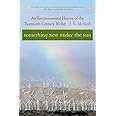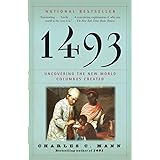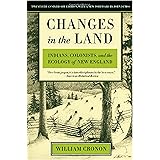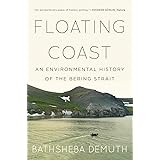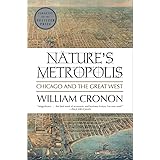
Enjoy fast, free delivery, exclusive deals, and award-winning movies & TV shows with Prime
Try Prime
and start saving today with fast, free delivery
Amazon Prime includes:
Fast, FREE Delivery is available to Prime members. To join, select "Try Amazon Prime and start saving today with Fast, FREE Delivery" below the Add to Cart button.
Amazon Prime members enjoy:- Cardmembers earn 5% Back at Amazon.com with a Prime Credit Card.
- Unlimited Free Two-Day Delivery
- Streaming of thousands of movies and TV shows with limited ads on Prime Video.
- A Kindle book to borrow for free each month - with no due dates
- Listen to over 2 million songs and hundreds of playlists
- Unlimited photo storage with anywhere access
Important: Your credit card will NOT be charged when you start your free trial or if you cancel during the trial period. If you're happy with Amazon Prime, do nothing. At the end of the free trial, your membership will automatically upgrade to a monthly membership.
Buy new:
$38.78$38.78
Ships from: Amazon Sold by: CHX OUTLET
Save with Used - Acceptable
$6.70$6.70
Ships from: Amazon Sold by: The BAP Goods

Download the free Kindle app and start reading Kindle books instantly on your smartphone, tablet, or computer - no Kindle device required.
Read instantly on your browser with Kindle for Web.
Using your mobile phone camera - scan the code below and download the Kindle app.

OK
Ecological Imperialism 2ed: The Biological Expansion of Europe, 900-1900 (Studies in Environment and History) 2nd Edition
Purchase options and add-ons
- ISBN-100521546184
- ISBN-13978-0521546188
- Edition2nd
- PublisherCambridge University Press
- Publication dateMarch 18, 2004
- LanguageEnglish
- Dimensions6 x 0.92 x 9 inches
- Print length408 pages
Books with Buzz
Discover the latest buzz-worthy books, from mysteries and romance to humor and nonfiction. Explore more
Frequently bought together

Similar items that may ship from close to you
Editorial Reviews
Review
"Crosby argues his case with vigour, authority, and panache, summoning up examples and illustrations that are often as startling in their character as in their implications. Ecological Imperialism could not ask for a more lucid and stylish exponent." Times Literary Supplement
"Crosby has unfolded with great power the wider biopolitics of our civilization." Nature
Book Description
About the Author
Product details
- Publisher : Cambridge University Press; 2nd edition (March 18, 2004)
- Language : English
- Paperback : 408 pages
- ISBN-10 : 0521546184
- ISBN-13 : 978-0521546188
- Item Weight : 1.19 pounds
- Dimensions : 6 x 0.92 x 9 inches
- Best Sellers Rank: #1,212,108 in Books (See Top 100 in Books)
- #1,520 in Human Geography (Books)
- #1,946 in England History
- #3,708 in History (Books)
- Customer Reviews:
About the author

Discover more of the author’s books, see similar authors, read author blogs and more
Customer reviews
Customer Reviews, including Product Star Ratings help customers to learn more about the product and decide whether it is the right product for them.
To calculate the overall star rating and percentage breakdown by star, we don’t use a simple average. Instead, our system considers things like how recent a review is and if the reviewer bought the item on Amazon. It also analyzed reviews to verify trustworthiness.
Learn more how customers reviews work on Amazon-
Top reviews
Top reviews from the United States
There was a problem filtering reviews right now. Please try again later.
Crosby tries to answer the questions why and how people of the European race – unlike other races who are sited within given spatial gamut – are settled in various places, distant to each other, across the globe. Obviously, scores of people must have crossed the seams of Pangaea to these continents, but how? Crosby answers this question with a good history of navigation, which involves the discovery of the physical geography of the sea and an understanding of the global wind system – the key to the success of navigation. The discovery of the behavior of the oceans by the ancient explorers and the marinheiros made mass immigration possible.
With regard to how European flora and fauna came to dominate the Neo-Europes, Crosby gives credit to the climate as well as European weeds, and feral animals. Once the New World’s ecology had been disturbed, weeds of European descent shoved the native flora aside and created fertile grounds for European organisms to thrive. The argument is that weeds do well in lands that witness dramatic disturbances; hence, the grazing of European animals and the felling of trees for timber disturbed the new land – erosion. Weeds then took over these disturbed lands and stabilize them by covering up the soil against erosion and the scotching sun, creating much more fertile soil for European plants and grazing fields for European animals.
According to Crosby, the coup d'état that led to the obliteration of native populations in the Neo-Europes, and led a successful demographic take-over by Europeans, was not successful because of the brutality and superior weapons of the imperialist, but it was a concealed lethal weapon –disease – which they carried unknowingly that brought them victory. Native populations in the Neo-Europes lived in pockets of sparsely populated settlements, and largely engaged in hunting and gathering. This way of living made them vulnerable to new germs and diseases. The lack of success of European imperialism in places such as Africa and Asia, According to Crosby, was due to their resistance to European germs, and the presences of equally deadly disease, which the Europeans stood the chance of contracting. The explanation given for this is that Asians and Africans, like Europeans, lived in compact settlements with domesticated plants and animals, which exposed them on a constant basis to germs and diseases that developed from that way of living. As a result, they eventually developed some resistance to these germs and diseases. This comparison of the Neo-Europes with Africa and Asia, in my opinion, makes Crosby’s argument more plausible. If indeed, it was the superior weapons of the colonialist that led to the creation of the Neo-Europes, why was the situation different in Africa and Asia? According to Crosby, the natives of the Neo-Europes, already thinly populated, succumbed to European disease such as small pox, measles, dysentery, catarrhal jaundice, whooping cough, mumps, tonsillitis, and host of other diseases. Already weaken by diseases; the natives could not put up any meaningful resistance to European imperialism. In a nutshell, Crosby gives credit to European organisms – weed, feral animals, and pathogens – for the European imperial success in the Neo-Europes. He described these organisms, which he calls portmanteau biota, as working as a team to usurp the native biota for the eventual Europeanization of the Neo-Europes.
Crosby account does away with the usual misconception that natives lived in total harmony with their environment. Although the scale of native impact on the environment – the first wave of invasion – may have been much less than the European invasion – the second wave – they nevertheless left ecological footprints. This book also gives a background to western economic dominance over the rest of the world, as it talks about how they were able to appropriate resources from distant lands. The holistic approach Crosby adopts in his account, in my view, makes this book appealing and readable across disciplines – as a geographer, the chapter on the winds was particularly very informative to me, as I have known the direction of the global winds, but not the history behind their discovery. I also took some biology lessons from reading this book; particularly, the behavior of weeds and pathogens.
In one of the chapters, Crosby compares European weapons to those of natives, in an effort to downplay the issue of superior weapons as the main driving force of European imperialism. Although the Europeanization of the Neo-Europes had nothing to do with their superior weapons, the military might of the European colonialists cannot be belittled. What explanation will be given for European political dominance elsewhere? I believe Crosby could have still made a strong case for disease without drawing this comparison.
Crosby's broad topic is the manner in which a handful of European nations managed to replicate their societies in places like North America, Southern South America, Australia and New Zealand. As an initial task he needs to make the widely recognized distinction between places where European colonization resulted in the mas or menos eradication of the native populations (those places above) vs. places where the native populations retained control (Middle East, South Asia, East Asia.)
The main thrust of Crosby's intelligent thesis is to demonstrate the biological differences between the Old Eurasian and New American/Australian worlds in terms of biology. Europeans were the direct heirs to four thousand years of pre-European civilization stretching back to Sumer, and with that came some distinct advantages when they eventually crossed the oceans to the New World. Specifically, European conquerors brought the small pox virus with them (in addition to a host of other diseases). Small Pox functioned like an advance army for the Europeans, clearing the way for them before they even arrived. No where is this more clear then within the United States, where a little known civilization with many resemblances to the Meso-American Aztec area flourished and disappeared before Europeans even got serious about exploring the place.
Crosby also makes good on a less obvious sub thesis having to do with why European weeds were dominant in their conquest in the New World (as much as their human counterparts) while their New World equivalents wholly failed to make their presence felt on the return trip to Europe. Here, he notes that weeds require environmental destruction to thrive (deforestation, slash and burn agriculture, etc.) and so the type of disruption caused by European colonial efforts was precisely what was required to foment the spread of European weeds (like the dandelion, for example.)
Throughout Ecological Imperialism, Crosby goes out of his way to downplay the importance of military technology- the fact is that in every single one of the major areas where the Europeans wiped out Indigenes, diseases led the way. And in place where diseases did not work in favor of the Europeans, the colonial experience was either a draw (South Africa, where whites held onto power but lost the population race) or an outright failure (India, China, Japan) where Europeans failed to do anything other then put down glorified trading posts.
As it should be clear from this summary, there was no moral or "natural" superiority of one civilization vs another, only what could be called the "luck of inheritance." The European conquerors combined their cultural inheritance with a (native) desire for expansion. In this way, they don't deserve credit for introducing small pox to indigenes around the world, but they certainly reaped the long term rewards.






